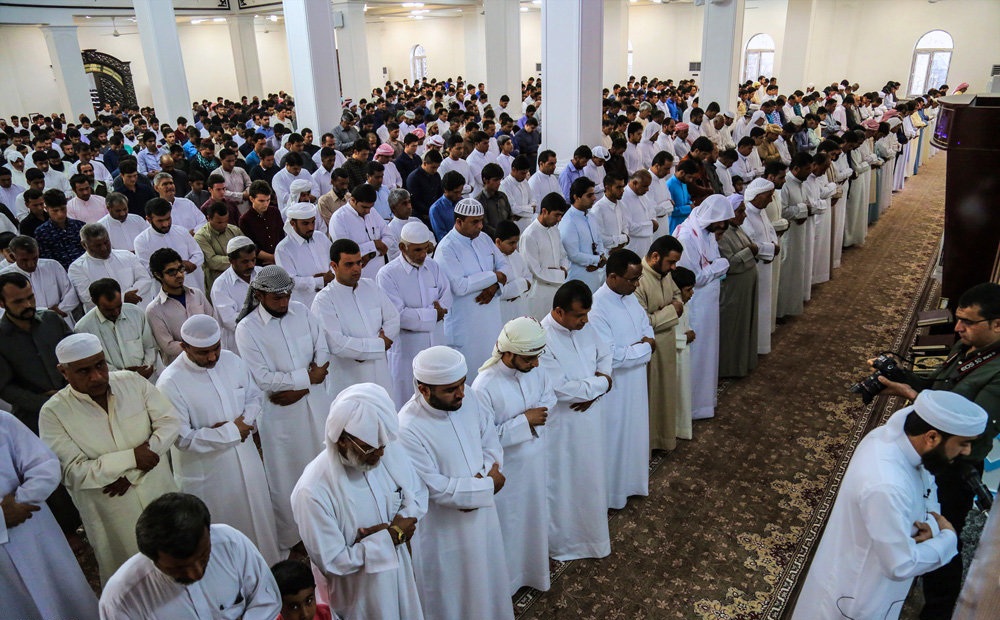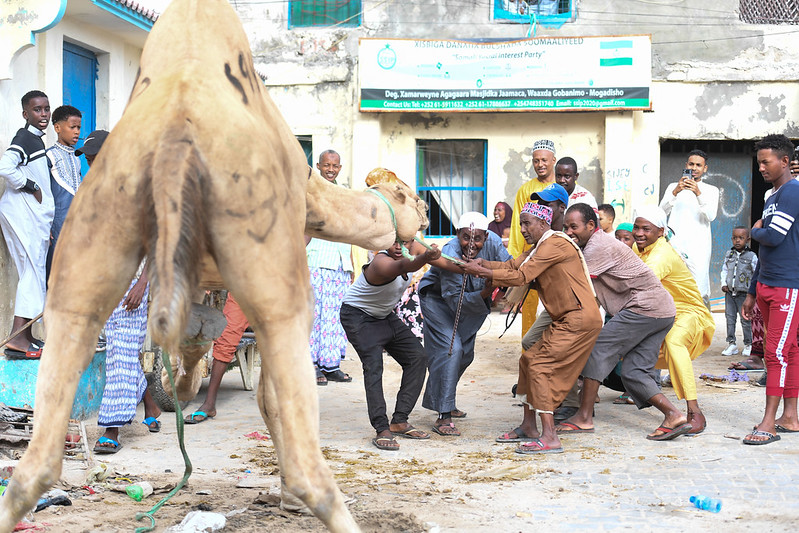Eid al-Adha, also known as the “Feast of Sacrifice”, is one of the two major Islamic holidays celebrated worldwide each year.
This important religious festival is the second of two Islamic holidays celebrated each year, the other being Eid al-Fitr which marks the end of Ramadan.
Eid al-Adha falls on the 10th day of Dhu al-Hijjah, the twelfth and final month in the Islamic lunar calendar.
What is Eid al-Adha? The Meaning and Significance.

Eid al-Adha commemorates the story of the prophet Ibrahim (Abraham) who showed his willingness and commitment to obey God’s command to sacrifice his son Ismail (Ishmael).
According to the Quran, just as Ibrahim was about to sacrifice his son, God provided a lamb to sacrifice instead as a reward for Ibrahim’s faithfulness.
To mark this occasion, Muslims around the world sacrifice a sheep, goat, cow or camel, keeping a portion to feed themselves and distributing the rest to the poor and needy. This act symbolizes the willingness to give up things that are of benefit to ourselves or close to our hearts in order to follow God’s commands.
It also exemplifies the values of charity and helping those who are less fortunate.
Eid al-Adha is a time of celebration, fellowship and thanksgiving. It is a day of joy and blessings, where Muslims gather with family and friends, exchange gifts, wear new clothes and enjoy special meals.
The day begins with special congregational prayers followed by the sacrifice ritual, and then the distribution of meat.
The Rituals and Traditions of Eid al-Adha
The main rituals of Eid al-Adha are:
- Eid prayers: Muslims gather at mosques or open areas to perform the Eid prayer at sunrise on the first day of Eid al-Adha. This consists of a sermon followed by a short congregational prayer.
- Animal sacrifice: After the Eid prayer, Muslims who can afford to do so sacrifice a sheep, goat, cow or camel. The animal must be healthy and free from any defects. The sacrifice can be performed anytime before sunset on the 13th day of Dhu al-Hijjah.
- Distribution of meat: The meat from the sacrificed animal is divided into three equal parts. One part is for the family, one part is given to relatives, friends and neighbors, and one part is donated to the poor and needy.
- Eid greetings: It is customary for Muslims to greet each other on the day of Eid with “Eid Mubarak”, which means “Blessed Eid”.
- Gift giving: Many Muslims exchange gifts with family and friends on Eid al-Adha. It is especially common to give gifts or money to children.
- Festive meals: Muslims enjoy special meals with family and friends that include the meat from the sacrifice. Various dishes and delicacies are prepared.
- Supplication and remembrance: In addition to the animal sacrifice, Muslims are encouraged to offer extra prayers and supplications, and engage in the remembrance of God.
Some other traditions associated with Eid al-Adha include:
- Putting on new or best attire for Eid prayers
- Visiting the graveyards and praying for the deceased
- Forgiving and seeking forgiveness
- Visiting friends and family
- Giving charity to the less fortunate

The Connection Between Eid al-Adha and the Hajj Pilgrimage
Eid al-Adha also marks the end of the annual Hajj pilgrimage to Mecca in Saudi Arabia. Hajj is one of the five pillars of Islam and is obligatory for all able-bodied adult Muslims who can afford it at least once in their lifetime.
The Hajj pilgrimage occurs from the 8th to the 12th day of Dhu al-Hijjah. On the 9th day, pilgrims stand on the plain of Arafat to pray for God’s forgiveness, in what is often thought of as a preview of the Day of Judgment. The 10th is Eid al-Adha, and the pilgrims perform the sacrifice ritual.
They then circle the Kaaba seven times, and perform other rituals before completing their pilgrimage.
So while Muslims globally are celebrating Eid al-Adha, the pilgrims on Hajj are also performing the rites of pilgrimage, which includes the sacrifice ritual. The sacrifice made by pilgrims is considered the highest form of sacrifice made on Eid al-Adha.
Eid al-Adha in the Philippines
In the Philippines, Eid al-Adha is officially known as “Hari Raya Haji” and is a national public holiday. The Philippines is home to a significant Muslim minority population, primarily based in Mindanao and the Sulu Archipelago.
Filipino Muslims, like their counterparts around the world, celebrate Eid al-Adha through prayers, animal sacrifice, charity, and family gatherings.
Many wear traditional Filipino Muslim clothing such as the baju kurung and baju melayu.In areas with large Muslim populations like Quiapo in Manila, Marawi City, and Cotabato City, the streets come alive with festive decorations and bustling markets selling everything from traditional delicacies to clothes and prayer mats. Mosques are filled with worshippers, and the aroma of delicious meals being prepared fills the air.
The Philippine government and private sector have made efforts in recent years to make Eid al-Adha a more inclusive celebration. Many malls and establishments put up Eid decorations and offer promotions and discounts.
Some companies give their Muslim employees time off to celebrate. There are also various public events and festivities organized to mark the occasion.
Conclusion
Eid al-Adha is a significant and joyous occasion for Muslims worldwide. It is a time to remember the sacrifices made by the Prophet Ibrahim, and to reflect on our own faith and obedience to God. It is a time of unity, charity and celebration.
Through the rituals of sacrifice, prayer, and charity, Muslims reinforce their commitment to God and their compassion towards others, especially the less fortunate. The festivities of Eid strengthen family and community bonds.
In the Philippines, Eid al-Adha is an opportunity for Filipino Muslims to come together in faith and celebration, and for the wider Filipino society to recognize and appreciate the rich cultural diversity of the nation.
As we greet our Muslim brothers and sisters “Eid Mubarak”, let us all reflect on the values of faith, sacrifice, unity and compassion that Eid al-Adha represents. In a world that is often divided, these are values that we all need, regardless of our faith or background.
Eid al-Adha reminds us of our shared humanity and the importance of living in harmony with one another.




Your comment is awaiting moderation.
Enjoyed every bit of your blog post.Much thanks again. Want more.